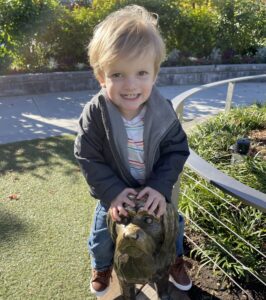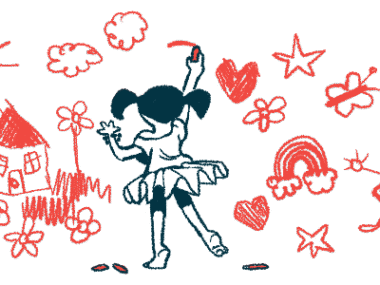Why I sometimes feel fear of the future for my youngest son
Will his potential differences cause him a tougher time in the world?
Written by |

Parenting brings many challenges, but there’s one that’s always front and center for me: keeping my sons safe and secure. As they’re 6 and 3 years old, I’m fully aware they’ll have bumps and bruises, explorations that go right and ones that go wrong, and experiments that push the boundaries of what they can do. I want to encourage all of those tendencies while keeping a watchful eye to make sure they’re safe.
I also understand that I have zero control over many aspects of raising children. Still, I never assumed that having a child with a rare genetic condition would add to that list. My youngest son, Finley, was born with Alagille syndrome, which affects his liver and heart. While many of my worries about him growing up are largely the same as for his older brother, they come with additional weight for Finley.
As he’s aged, Finley’s condition has been trending in the direction we’d hoped. He still has liver disease, but he’s stable and growing. But that growth is at his unique pace, which is true for most with Alagille syndrome.
I’ve written about our experiences with his size, a topic that’s popped up in a few ways. Buying shoes, for instance, was challenging when he was younger and learning to walk. People assume he’s younger than he is.
Finley may be smaller than his classmates at day care, but he can do everything they can do. What I love about kids this age is that they have no idea what a rare disease is. They’re not aware of his unusual size, as we may expect them to be when he gets older. It’s a sweet spot of development when they’re all learning to be little people, but aren’t able to focus on their differences. And that’s what gives me worries — because this period will pass.
What’s ahead for Finley?
When his elementary school starts, what happens then? I have no control over how a kid may point out his size or appearance. How will he be perceived? Alagille syndrome often causes people to have distinctive facial features. All I want is for my child to be accepted, happy, and safe. The lack of control I have over my kids’ experience at school, amplified by Finley’s rare disease, is something I’m going to have to work to live with.
But size won’t hold him back. It certainly hasn’t up to this point. Finley is more than capable of sticking up for himself and has proven he will if he needs to. I’m not too worried about him because I believe he’s a great kid who’s going to continue to do well in every setting he enters. But the world can be cruel to those who are different. It’s hard to put those worries to bed when they’re accompanied by medical complexities.
My role as Finley’s father is to set him up for success as best I can, providing him with opportunities to develop into a great, loving, and caring human being. I can only control what I can control. That’s a hard concept to come to terms with when a child has a rare disease. It’s one I’ll continue to work on over time.
Note: Liver Disease News is strictly a news and information website about the disease. It does not provide medical advice, diagnosis, or treatment. This content is not intended to be a substitute for professional medical advice, diagnosis, or treatment. Always seek the advice of your physician or other qualified health provider with any questions you may have regarding a medical condition. Never disregard professional medical advice or delay in seeking it because of something you have read on this website. The opinions expressed in this column are not those of Liver Disease News or its parent company, Bionews, and are intended to spark discussion about issues pertaining to liver disease.






Leave a comment
Fill in the required fields to post. Your email address will not be published.